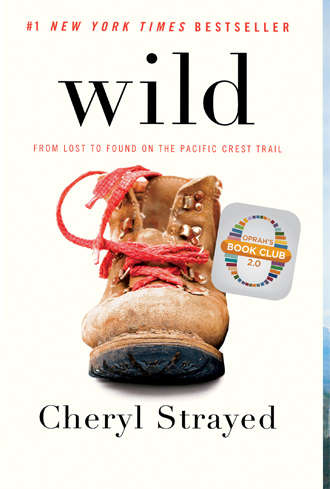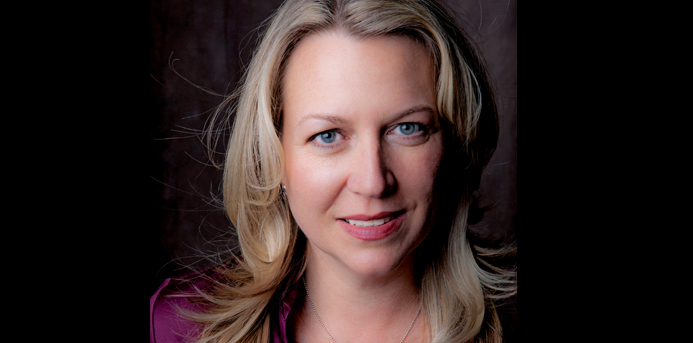“I wish we could be braver.”
It was an answer to a question unrelated to my conversation with best-selling author Cheryl Strayed. I asked her about a project of her husband’s (documentarian Brian Lindstrom), a story about a mentally ill man that died in police custody.
 Was there anything to be learned from that experience that could be applied to the recent unrest in Ferguson, Mo.? “I think we have a real problem with how to address police misconduct,” she says, adding that so often, situations like these are presented as facts in black and white. “There’s a lot of mistrust. I wish there could be a more nuanced conversation. You can be an imperfect human being.”
Was there anything to be learned from that experience that could be applied to the recent unrest in Ferguson, Mo.? “I think we have a real problem with how to address police misconduct,” she says, adding that so often, situations like these are presented as facts in black and white. “There’s a lot of mistrust. I wish there could be a more nuanced conversation. You can be an imperfect human being.”
And with that comes the connection to writing. Strayed says it’s about “being brave on the page and taking those risks to tell the truth.”
The truth is something with which Strayed is intimately familiar. Her memoir, “Wild,” is a global bestseller and now a major motion picture starring Reese Witherspoon as Strayed, hiking the Pacific Crest Trail.
I asked Strayed about her book, honesty in writing, and the experience of seeing your life played out before you:
Make It Better: There are so many themes in “Wild” that could be considered as central to the story—the physical challenge, the struggle with addiction and sobriety, and the resolution of grief. Was there one particular theme for you that felt more important than the others?
Cheryl Strayed: That’s so hard. Obviously, I put my whole heart into theme, wanting every theme to be as powerful as it could be. One of the things I love is listening to what everyone has to say about it, “Oh, it was this theme that got to me,” or “It was here that I cried.” If you do your job as a writer, the book doesn’t belong so much to you anymore; it belongs to those impacted by it. So having said that, I definitely feel like [“Wild”] isn’t mine anymore. It belongs to the readers.
There were definitely themes when I was writing it that hit me especially powerfully, where I knew that I not only had to tell the truth about what it means to be human, but learn something about myself in the process.
I think some people get this idea because it’s memoir, you sit down and write what happened to you, and, of course, it’s a lot more to it than that. It’s trying to make sense and find meaning in what’s happened and convey that in a way that’s relevant to people. I think there were a couple of those themes where I felt like I’ve learned something about myself in a way I could tell others about the sort of human experience and not just my experience.
For example, there was the scene in the book, it was 19 years ago, [when] I woke up and it was my mother’s 50th birthday. I was mad my mom was dead and I went through that list of everything she’d done wrong, and two days later I get to Crater Lake and I can see what healing looks like. I could see this lake that used to be a volcano that blew up and then was a wasteland and then this beautiful lake. I loved being able to write about the way nature can show us the beauty of transformation and the beauty of healing.
When I wrote that scene? I bawled my head off. It meant a lot to me. It was reaching that true place you want to get to when you write.
Your mother was and remains important to you. When asked about writing about or through relationships, what advice do you offer?
It’s the most complicated part about writing a memoir. You do have to be very vulnerable and open and raw. You have to really go for the truth. There’s no way around it. The advice I give my writing students is try to be open about your own experience, but consider [family members’] privacy and consider their feelings.
What was it like to collaborate with Nick Hornby (who wrote the script for “Wild”)?
I was really involved in the making of the film. They asked me to read the script and offer feedback … It was really interesting. In order for them to make a good film, they had to reinvent the book in some ways to bring it to the screen. It was a very collaborative effort to figure out, “How does this book come alive? How do we convey this story in a truthful way?” They cared enormously about honoring the book and having that be a realistic portrayal. The film is pretty true to the book. It was an amazing experience.
What was it like watching your life play out on screen?
It’s insane. It is just as weird as you think it is, but it’s beautiful too. Some scenes are more true than others, and there are some that are a re-enactment of my life. It was moving and it was funny—it was all the range of emotions. It was as fun as could be.
And the last best book you read?
“Blind” by Rachel DeWoskin.

